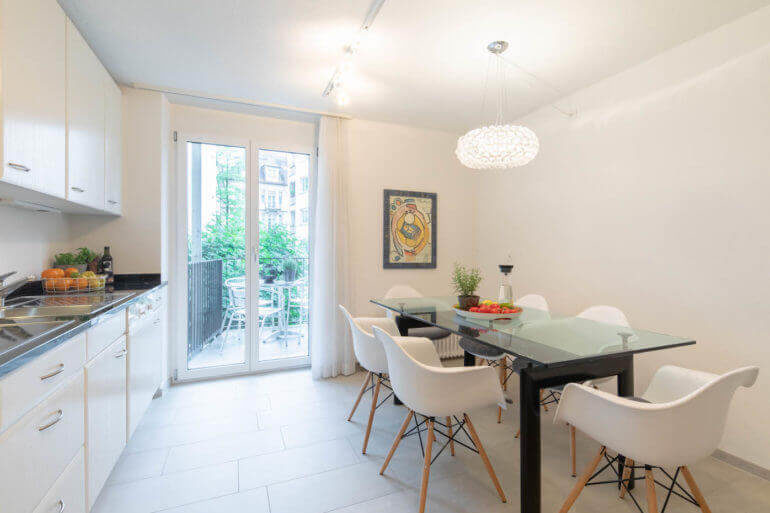
Around 52 percent of the Swiss live in rented accommodation, while only 48 percent own their own home. This means that the majority of Swiss people have to deal with the issue of rent on an ongoing basis.
In the beginning is the rental agreement
Once the right apartment or house has been found and landlord and tenant have come to an agreement, the next step is to sign a rental contract. Even if a verbal agreement is theoretically legally valid, it is customary to set down the most important agreements concerning the rental property in writing in a contract. The most important points that should be recorded include the contracting parties, the start date of the lease and the amount of rent. It should also be agreed whether the rental relationship is limited or unlimited. It is also important to note whether the landlord provides for a graduated or index-linked rent. This means that the basic rent increases at regular intervals. Before signing a rental agreement, you as a tenant should read it thoroughly and discuss any incomprehensible passages and clauses with the landlord.

Pay rent regularly and on time
The tenant’s primary obligation is to pay rent and utilities on time and, most importantly, regularly. If you fail to pay rent, the landlord may terminate your lease without notice, but at short notice. He must then grant you a payment period of 30 days and give you notice of possible termination. If you do not meet your payment obligations within this period, the termination becomes legally effective. He can then terminate your contract at the end of the following month. It is usually futile to contest the termination.
The amount of rent
The amount of rent always depends on the size and the equipment of the apartment. And of course according to the location. It is a fact that rents are significantly higher in Swiss cities than in the countryside. In addition, there are more desirable and less desirable districts in the cities. So there are significant differences in rents there as well. As a rule, supply and demand determine the level of rent.

Living furnished?
A distinction is made between furnished and unfurnished living. Both have their advantages and disadvantages. However, if you only want to move into an apartment or house temporarily, you will have to pay a slightly higher rent, but you will save money over a few years because you do not have to buy your own furniture. Therefore, furnished living is often the better alternative.
